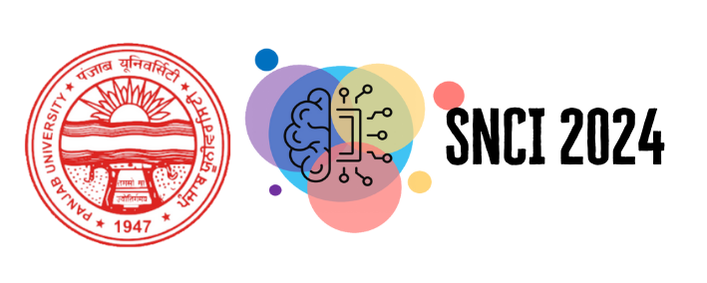From Coastal Concerns to Capital Updates Real-time developments across Nigeria, breaking news in nig
- From Coastal Concerns to Capital Updates: Real-time developments across Nigeria, breaking news in nigeria today 24/7, and a focused look at infrastructural progress.
- Economic Developments and Infrastructure Projects
- Political Landscape and Governance
- Addressing Security Challenges
- Social and Cultural Developments
- Technological Advancements and Digital Transformation
- Environmental Concerns and Sustainability Initiatives
From Coastal Concerns to Capital Updates: Real-time developments across Nigeria, breaking news in nigeria today 24/7, and a focused look at infrastructural progress.
The pulse of Nigeria remains dynamic, with a constant stream of developments impacting its citizens and the wider world. Staying informed about the latest happenings, breaking news in nigeria today 24/7, is crucial for understanding the nation’s trajectory. From shifts in political landscapes to advancements in infrastructure and evolving socio-economic conditions, the nation presents a complex and often rapidly changing narrative. This article provides a comprehensive overview of recent events, focusing on key areas of progress and challenges currently faced.
Nigeria, as Africa’s most populous country, holds significant regional and global influence. Its economic growth, demographic trends, and political stability are matters of keen interest. This overview details developments across several key sectors, providing insights into the current status and potential future directions of the nation.
Economic Developments and Infrastructure Projects
Nigeria’s economic landscape is undergoing a period of transition, driven by global market forces and internal policies. Recent reports indicate a bolstering effort towards diversifying the economy, lessening the reliance on oil revenues. The government is actively promoting sectors like agriculture, technology, and manufacturing. Several new initiatives have been launched to encourage foreign investment and stimulate local entrepreneurship, leading to employment opportunities and economic growth. However, challenges remain, including inflation and infrastructure deficits.
Significant investment is being directed towards critical infrastructure projects including roads, rail networks and power generation. Enhanced infrastructure is a key enabler for economic expansion and improved living standards. These projects are not without hurdles, including financing constraints and logistical challenges, but they represent a vital step towards unlocking Nigeria’s economic potential.
| Lagos-Kano Railway Modernization | Transportation | $8.3 Billion | 2027 |
| Second Niger Bridge | Transportation | $3.8 Billion | 2024 |
| Mambilla Hydroelectric Power Plant | Energy | $5.75 Billion | 2028 |
Political Landscape and Governance
The political arena in Nigeria is marked by ongoing debates surrounding electoral reform, security concerns, and regional tensions. Recent elections have led to shifts in power dynamics, and the current administration is confronting challenges related to governance and accountability. Citizen engagement and calls for transparency are growing, creating pressure on policymakers to address issues of corruption and ensure inclusive governance. The nation continues to navigate the complex interplay of ethnic and religious identities, requiring careful diplomacy and inclusive leadership.
Efforts to strengthen democratic institutions and promote rule of law are underway, however, progress is incremental and requires sustained commitment from all stakeholders. Civil society organizations are playing a key role in advocating for good governance and holding those in power accountable. Ensuring credible electoral processes and addressing security threats remain paramount to maintaining political stability.
Addressing Security Challenges
Security remains a major concern across many regions of Nigeria, with ongoing conflicts involving armed groups and communal clashes presenting significant challenges. The authorities are responding with military operations and community engagement initiatives, but achieving lasting peace requires a multifaceted approach. Addressing the root causes of conflict, including poverty, inequality, and lack of opportunities, is crucial. Furthermore, strengthening security forces and improving intelligence gathering are essential for effectively countering terrorism and other criminal activities. The porous borders bordered by other nations, makes the security situation even more unstable. Law enforcement is working autonomously and alongside the military to address and quell disturbances.
Regional cooperation is crucial in tackling transnational security threats. Nigeria is actively collaborating with neighboring countries to share intelligence, coordinate border patrols, and combat illegal arms trafficking. Addressing the humanitarian impact of conflict and providing support to displaced populations is also a priority. Ultimately, a sustainable solution requires a long-term commitment to peacebuilding, reconciliation, and inclusive governance.
Social and Cultural Developments
Nigeria boasts rich cultural diversity, with a vibrant arts scene and a growing entertainment industry. Music, film, and fashion are flourishing, attracting global attention and showcasing the nation’s creativity. Additionally, technological innovation is fostering positive social change, enabling access to education, healthcare, and financial services. However, challenges persist in areas like access to quality education, healthcare inequality, and social justice. Addressing these issues is essential for ensuring equitable development for all citizens.
Community-led initiatives are playing a crucial role in promoting social and cultural harmony. Traditional institutions, religious organizations, and civil society groups are working together to address local challenges and foster a sense of belonging. Investing in education, healthcare, and social safety nets are critical to improving the well-being of all Nigerians.
- Promoting access to quality education for all.
- Strengthening healthcare infrastructure and expanding access to affordable care.
- Empowering women and girls through education and economic opportunities.
- Investing in youth development initiatives and creating employment opportunities.
- Promoting social inclusion and addressing inequalities.
Technological Advancements and Digital Transformation
Nigeria has witnessed significant growth in its technological sector, attracting local and foreign investment. The country boasts a large and growing pool of tech talent and is becoming a hub for innovation in Africa. Fintech companies are reshaping the financial landscape, providing innovative solutions for financial inclusion. The government is supporting digital transformation initiatives, including the development of a national broadband plan, to enhance connectivity and accelerate digital adoption. Despite these advancements, challenges to accessibility and infrastructure investments remain.
Expanding digital literacy and bridging the digital divide are essential for realizing the full potential of technology. Providing affordable access to internet connectivity and digital skills training is crucial for ensuring that all citizens can participate in the digital economy. Strong cybersecurity measures are also needed to protect individuals and businesses from evolving online threats. Promoting innovation through research and development grants can also accelerate technological progress.
- Investing in infrastructure for improved connectivity.
- Developing robust cybersecurity frameworks.
- Promoting digital literacy and entrepreneurship.
- Supporting the growth of the fintech sector.
- Fostering a regulatory environment that encourages innovation.
Environmental Concerns and Sustainability Initiatives
Nigeria faces significant environmental challenges, including deforestation, desertification, pollution, and climate change. The degradation of natural resources poses a threat to livelihoods and human well-being. The government is implementing several initiatives to address these issues, including reforestation programs, waste management strategies, and renewable energy projects. However, more concerted efforts are needed to promote sustainable practices and mitigate the impacts of environmental degradation.
Community involvement is crucial for the success of environmental initiatives. Empowering local communities to manage their natural resources sustainably and promoting environmental awareness are essential. Investing in green technologies and promoting eco-tourism can also contribute to environmental conservation and sustainable development. International collaborations also must be forged for increased support and knowledge-sharing regarding sustainability.
| Deforestation | Great Green Wall Initiative | Illegal Logging and Agricultural Expansion |
| Oil Pollution in Niger Delta | Hydrocarbon Pollution Remediation Project (HYPREP) | Limited Funding and Community Resistance |
| Waste Management | National Environmental Standards and Regulations Enforcement Agency (NESREA) | Inadequate Infrastructure and Public Awareness |
This overview highlights the multifaceted nature of current developments across Nigeria. Successfully navigating the opportunities and challenges will require continued investment in infrastructure, good governance, sustainable practices, and social inclusion. The ongoing pursuit of these endeavors is essential for unlocking Nigeria’s full potential and ensuring a prosperous future for its citizens.



